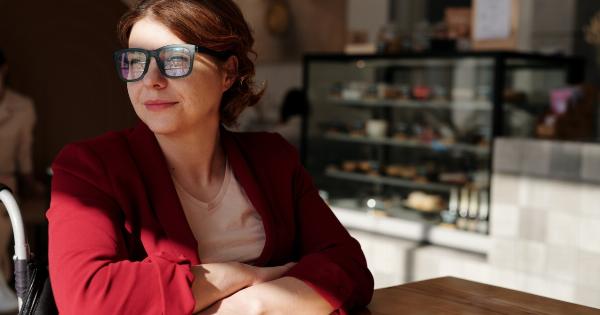The World Day of Persons with Disabilities is an international observance aimed at promoting the rights and well-being of people with disabilities.
It is celebrated annually on December 3rd and serves as a reminder to society about the importance of inclusion, accessibility, and empowerment for all individuals, regardless of their abilities.
Understanding Disabilities
Disabilities can take various forms and affect individuals in different ways. Physical disabilities may result from accidents, illness, or congenital conditions, limiting a person’s mobility or motor functions.
Sensory impairments, such as blindness or deafness, can impact how individuals perceive and interact with the world. Additionally, there are intellectual and developmental disabilities that may affect cognitive abilities, learning, and socialization.
Promoting Inclusion and Accessibility
One of the primary goals of the World Day of Persons with Disabilities is to emphasize the need for inclusivity in all aspects of life.
Inclusion entails creating an environment where individuals with disabilities have equal opportunities to participate, contribute, and thrive. This involves removing physical, social, and attitudinal barriers, making public spaces, transportation, and communication accessible.
The Role of Technology
Advancements in technology have significantly contributed to empowering persons with disabilities. Assistive devices, such as wheelchairs, hearing aids, and screen readers, enable individuals to overcome physical and sensory limitations.
Communication tools and augmentative and alternative communication (AAC) devices allow people with speech impairments to express themselves effectively. Technology also facilitates inclusive education, employment opportunities, and independent living.
Education for All
Education plays a crucial role in empowering persons with disabilities by providing them with knowledge, skills, and opportunities for personal growth.
Inclusive education promotes equal access to quality education for all students, regardless of their abilities. It emphasizes adapting teaching methods, curriculum, and classroom environments to accommodate diverse needs. Inclusive schools foster understanding, empathy, and friendship among all students.
Employment and Economic Empowerment
Meaningful employment is essential for the economic empowerment of persons with disabilities. However, they often face significant barriers to accessing and retaining employment.
Discrimination, lack of accommodations, limited access to education and skills training, and negative stereotypes contribute to high unemployment rates among people with disabilities. Efforts to promote inclusive workplaces, reasonable accommodations, and disability-inclusive hiring practices are crucial for fostering the economic independence of individuals with disabilities.
Healthcare and Well-being
Access to quality healthcare is vital for people with disabilities to attain optimal health and well-being. They often have unique healthcare needs and may require specialized services, therapies, or assistive devices.
Ensuring accessible healthcare facilities, training healthcare professionals on disability-specific care, and promoting health promotion and preventive measures are essential for supporting the overall well-being of persons with disabilities.
Advocacy and Policy Changes
The World Day of Persons with Disabilities serves as a platform to advocate for the rights and needs of individuals with disabilities. It raises awareness about the importance of disability-inclusive policies, legislation, and human rights.
Through advocacy efforts, it is possible to drive positive changes at local, national, and international levels, ensuring legal protections, equal opportunities, and social inclusion for persons with disabilities.
Breaking Stereotypes and Challenging Perceptions
Attitudes, prejudices, and stereotypes surrounding disabilities can hinder the progress of empowering persons with disabilities. Shifting societal perceptions and challenging negative narratives is a vital part of ensuring inclusivity and equality.
Celebrating the achievements, capabilities, and contributions of persons with disabilities can help break down barriers and inspire others to see beyond disabilities.
Building Supportive Communities
Creating supportive communities involves fostering a sense of belonging, acceptance, and social integration for individuals with disabilities.
Community-based services and support networks play a vital role in meeting their specific needs while promoting their active participation. Encouraging social interactions, providing accessible recreational opportunities, and promoting inclusive events contribute to the overall well-being and inclusion of persons with disabilities.
The Power of Advocacy
Advocacy is a powerful tool in the journey towards empowering persons with disabilities. It involves amplifying their voices, raising awareness, and mobilizing support for change.
Individuals, organizations, and governments must come together to advocate for disability rights, address systemic barriers, and promote the necessary changes to build a more inclusive and equitable world for everyone.































